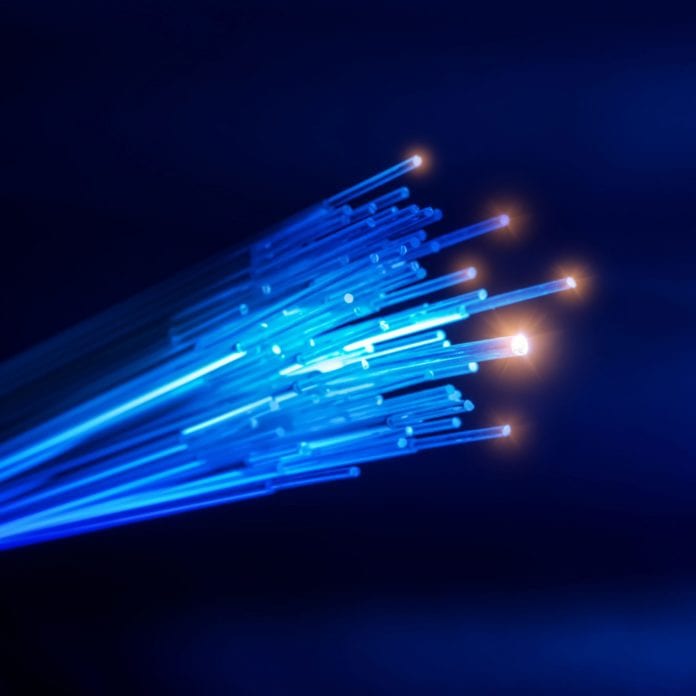These days, everyone is excited about 5G internet, and it’s obvious why; 5G is going to greatly increase the downloading and uploading potential of mobile devices, and bring the world closer together than ever before. Tests of the new system, due to roll out later this year, show potential speeds of potential speeds of four gigabits per second, which could feasibly allow you to download a typical 50 gigabyte game in two minutes or less, and an entire movie—in 4K, no less—in four minutes.
Over the past two decades, we’ve seen multiple breakthroughs in internet speed (as anyone who lived through the dial-up modem era can attest). But is there an upper limit to how fast the internet can become in the future? Will 6G outstrip our expectations for 5G? What about 9G and beyond?
Why 5G will be so fast
First, it helps to understand the breakthroughs that have gotten us to this point, and the current technological abilities and limits that have made 5G possible. One big breakthrough for 5G is the use of millimeter wave technology, which allows for the transmission of more information at any given time. Wireless internet relies on radio waves to transmit signals, much like traditional radios, but at a different section of the electromagnetic spectrum. Current 4G internet utilizes a range between 700 MHz to 2,100 MHz (2.1 GHz), but 5G could use shorter wavelength and higher frequency transmissions to improve that by multiple orders of magnitude.
Latency and bandwidth
The internet speed you experience on a device actually depends on two things: latency and bandwidth.
Latency refers to the amount of delay in information signaling when you’re waiting for a reply. Information needs to be transmitted over some distance, whether that’s via radio signals in the air, or directly through cables like copper or fiber optic cable. The absolute upper limit for information transmission is the speed of light, the upper speed limit of the universe, but materials like copper and glass will never reach the “true” speed of light. For example, fiber optic cable reaches about two-thirds the speed of light in a vacuum (which is still impressive). Routers, radio towers, and cell phone receivers all introduce further latency.
Bandwidth, on the other hand, refers to the amount of information able to be carried at once. Think of it as the number of passengers in your car, which is bound by the speed of light. Here, the limit depends on the frequency you’re using (which is why 5G is able to increase speed so drastically).
Bandwidth has a much higher ceiling for exploration. Currently, the highest potential bandwidth we have is supported by fiber-optic cables, since they operate in visible light frequencies, but scientists are pushing for even more bandwidth than they can offer with “multi-core” fiber-optics. Multi-core fiber-optics layer multiple channels on a single strand; they’re incredibly costly, and for now are limited to labs, but if mass-produced, could open the door to blistering internet speeds. One test in 2014 set the modern internet speed record, transmitting data at 255 terabits per second. To put that in perspective, that speed could hypothetically support almost all the world’s cumulative internet traffic, all at once, at peak time, on a single fiber cable. It’s about 2,550 times the current upper limit for fiber-optic cables. The problem, of course, is making this bandwidth reliable and cost-efficient to deploy on large scales; multi-core fiber-optics are still years away from efficient development.
Even further
Even that 255 Tbps speed isn’t the upper limit, however. There are two ways this bandwidth limit can be pushed. First, given enough time and resources, we should be able to engineer very thick cables, with tens of thousands of strands, instantly multiplying the amount of data capable of being carried at once. Second, we could feasibly push our transmission frequencies even higher into the electromagnetic spectrum, capitalizing on ultraviolet radiation (or even beyond that). Each upgrade here represents an improvement of orders of magnitude.
Is there an upper limit?
So is there an upper limit for internet speeds? For our purposes, we might as well think of future internet speeds as being infinite. We’ll always be bound by the speed of light, due to latency, but bandwidths of the future should be able to support speeds so fast we literally can’t comprehend them. The only downside to consider here is that as our internet speeds increase, so will our consumption. We’ll need higher-resolution media, more devices that require data to function, and of course, we’ll need to stream more information simultaneously. By the time we get to those incomprehensible speeds, we might be at a level of consumption that comprehends them.
Larry Alton is an independent business consultant specializing in tech, social media trends, business, and entrepreneurship.

